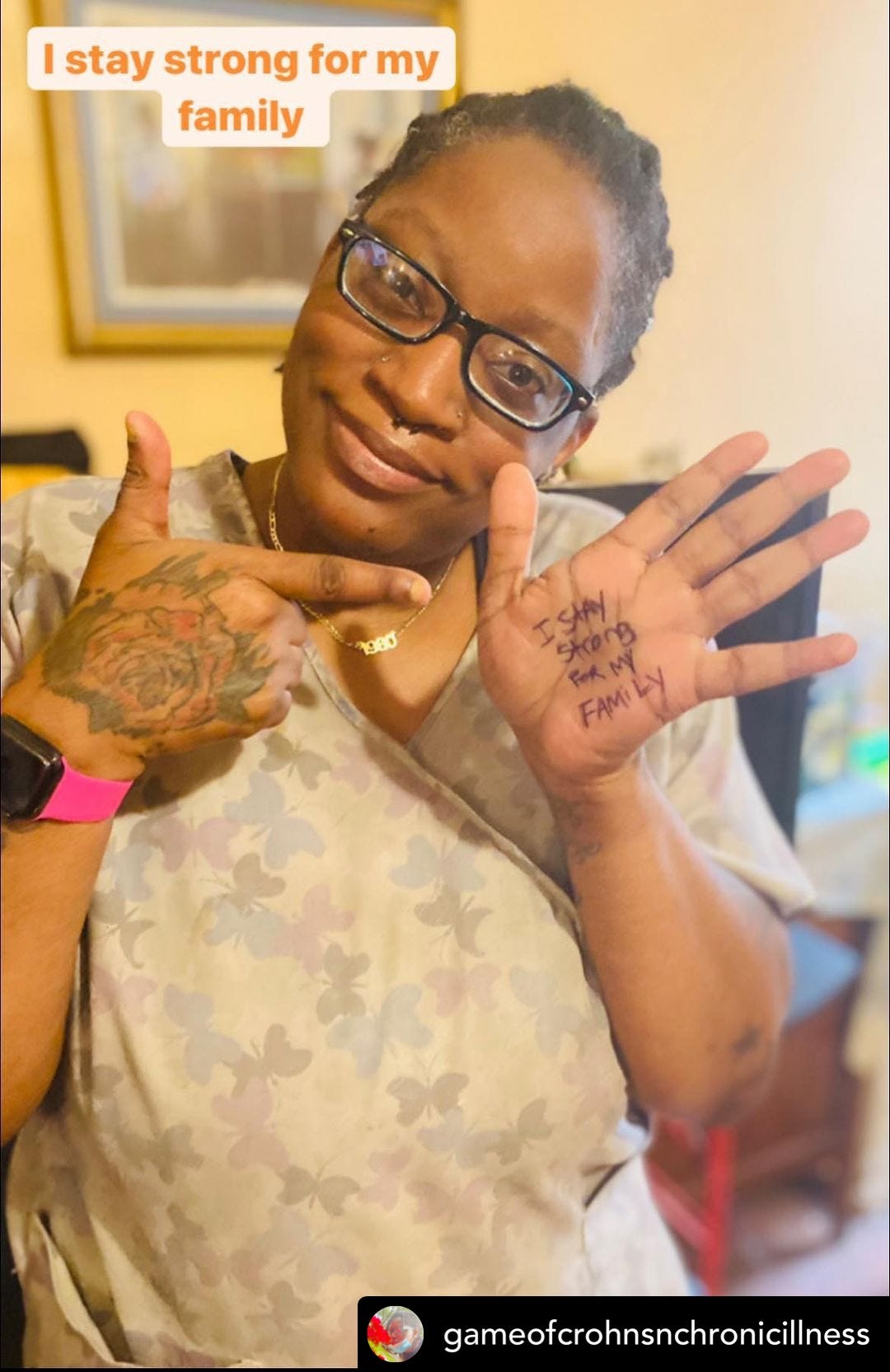Women and girls with disabilities and chronic illnesses already face an uphill battle to get the care and support they need but now many of them are facing a new challenge: being kicked off their meds because they happen to have a uterus.
Medically unnecessary abortion restrictions and bans that have gone into effect across the country have sent doctors and pharmacies into a frenzy because they fear being criminally charged with aiding and abetting abortion. Many of them are refusing to fill prescriptions for methotrexate, a common drug used to treat autoimmune disorders like lupus, cancer or rheumatoid arthritis because it can cause issues to a pregnancy— even if these women have no desire or intention to get pregnant. I spoke with Myisha Malone-King, a mom of four, for a piece I wrote for MSNBC, who has Crohn's Disease and received a stunning phone call from her doctor the day after Roe was overturned informing her that she was getting cut off her medication. The news came even though she lives in a state where abortion is protected. There’s even reporting from The Los Angeles Times of young girls with juvenile arthritis being the drug unless they can show evidence that they are not pregnant.

As chronic illness advocate and the Founder + CEO of Chronicon Nitika Chopra told me when I reached out to her about this story, women with disabilities “are currently being treated like an afterthought as we show up to our routine visits and going to pick up our medications, only to be denied the actual treatment we have been relying on, with no support or back up plan.” The same lawmakers who exploit the public’s empathy for people with disabilities are putting disabled women’s lives in jeopardy. “We need these medications to be permitted even if a woman is at a fertile age, and there should be no exceptions about that. We need them to do whatever we can to make that happen,” Nitika said.
Since I wrote about this on MSNBC, a new report dropped showing the impact of these abortion bans for the disabled community by the numbers. According to the non-profit National Partnership for Women and Families, more than half of women with disabilities and half of female veterans will be impacted by abortion bans that are expected in 26 states. Their analysis also shows that the majority of Native-American, Black, and poor women live in states where abortion is projected already or projected to be illegal.
Nitika’s advice for all the women living with a chronic illness who are afraid right now is to focus on their mental and physical health as a first priority:
“My advice would be to do everything you can to take care of you and your body right now, first. There is a huge fight here and we need as many of us to join forces in this fight as we can, but not at the expense of your own health. Please do what you need to in order to make sure that your health is managed the way it needs to, double check with your doctors about your treatment plans and schedule appointments now so you can have a strong point of contact throughout this entire process. Then, fight in the ways your body allows you to. Calling elected officials, educating people in your community, donating to organizations that are on the front lines of this fight if you can. We won’t back down, but we need you to be ok with your own health in order to keep up a good fight for the long haul.”
Let’s get through this together.





Are there any efforts to increase the number of registered voters in these communities?